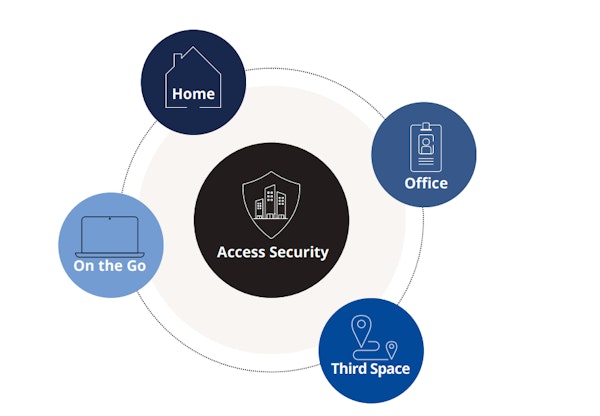Shifting boundaries: the next frontier for office security
How offices are being utilised has shifted, but for many companies their access security has stayed the same. A new report from Brivo examines how to respond to security threats that have changed
When we all worked 9 to 5 in the office, security was more straightforward – you probably knew the security guard on the door and you could usually be admitted to the building without any trouble.
However, in recent years, the boundaries around work have shifted. More people are working from home, coming into the office less frequently and working more flexible hours; this is an era of boundaryless working. As a result, employees are less familiar with people outside their own teams and new threats to company security have arisen.
So how can we keep our companies safe in this new era? That’s the question that a new report from technology company Brivo, ‘Shifting Boundaries: Managing Security in the Age of Boundaryless Working’, produced in association with WORKTECH Academy, is aiming to answer.
Through expert interviews and analysis of workplace statistics, this report examines how the boundaries of work has changed, taking readers through how access security is a critical tool to keep companies and employees safe whether they’re working from the office, from home or from a third space.

Image: Courtesy of Brivo
The role of access control has also shifted as the pandemic made companies reflect more on the workplace experience and how seamless entry plays a greater role in the day-to-day satisfaction of employees. This offers a new challenge for IT teams who are now increasingly working alongside facilities and estates teams to provide a straightforward experience as well as a safe one.
Three-part solution
In response to new challenges for access control infrastructure, the report advances a three-part solution – in order to have a safe organisation, companies need to be investing in three strands – the three ‘E’s’:
- Equipment: The technology a company utilises and how this is integrated into its buildings and infrastructure is the foundation of hybrid or remote-friendly security systems.
- Education: Staff should understand security protocols, no matter their environment – the office, remote or hybrid. Having a well-educated and responsive workforce that understands the technology and policies in place to protect them can go a long way to ensuring that security systems do their jobs.
- Experience: Employees need an experience that is seamless and remote while also not compromising on safety.
Through investment in these key areas, companies can ensure that they are creating a well-rounded and effective security system which will offer a level of protection from new threats that are emerging in the new world of boundaryless working.
Read more about access control in the full report here.








